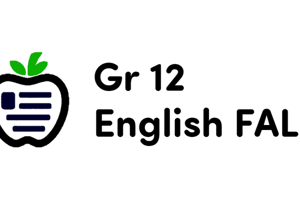Podcast
Questions and Answers
Which auxiliary verb would be used in the question: '___ you finished your project?'
Which auxiliary verb would be used in the question: '___ you finished your project?'
- Did
- Do
- Are
- Have (correct)
What is the correct response to the question 'Have you visited the museum?' in the negative form?
What is the correct response to the question 'Have you visited the museum?' in the negative form?
- No, I haven't. (correct)
- Yes, I haven’t.
- No, I did.
- Yes, I have not.
Which auxiliary verb is incorrectly used in the statement: 'She is seen that movie already.'?
Which auxiliary verb is incorrectly used in the statement: 'She is seen that movie already.'?
- has
- is (correct)
- has been
- did
In the sentence 'The presentation ___ completed by the team yesterday.', which auxiliary verb correctly fills the blank?
In the sentence 'The presentation ___ completed by the team yesterday.', which auxiliary verb correctly fills the blank?
Which sentence correctly uses the auxiliary verb 'do' in a question?
Which sentence correctly uses the auxiliary verb 'do' in a question?
Which structure correctly and completely represents a present perfect negative statement?
Which structure correctly and completely represents a present perfect negative statement?
In which context is the auxiliary verb 'be' used in negative form?
In which context is the auxiliary verb 'be' used in negative form?
Flashcards
Auxiliary Verbs
Auxiliary Verbs
Words that work with main verbs to form tenses, questions, and negatives.
Common Auxiliary Verbs
Common Auxiliary Verbs
The most common are "do", "have", and "be".
"Do" Use
"Do" Use
Used in negative statements, questions, and short answers (affirmative/negative).
"Have" Use
"Have" Use
Signup and view all the flashcards
"Be" Use (Progressive)
"Be" Use (Progressive)
Signup and view all the flashcards
"Be" Use (Passive)
"Be" Use (Passive)
Signup and view all the flashcards
Present perfect
Present perfect
Signup and view all the flashcards
Study Notes
Auxiliary Verbs
- Auxiliary verbs support main verbs.
- Common auxiliary verbs include "do", "have", and "be".
Using "do"
- Used in negative statements and questions.
- Used in affirmative and negative short answers.
- Example: "She doesn’t like social networking websites."
- Example: "Do you send lots of text messages?" (Yes, I do. / No, I don’t.)
Using "have"
- Used with present perfect and past perfect tenses for affirmative and negative statements, questions, and short answers.
- Example: "She has (not) created her own website."
- Example: "Has she posted any photos yet?" (Yes, she has. / No, she hasn’t.)
Using "be"
-
Used with progressive tenses (e.g., present continuous, past continuous) for affirmative and negative statements, questions, and short answers.
-
Example: "She is (not) answering her cell phone."
-
Example: "Is your cell phone working?" (Yes, it is. / No, it isn’t.)
-
Examples of past continuous: "He was using his brother’s cell phone yesterday." "Were you surfing the Internet last night?" (Yes, I was. / No, I wasn’t.)
-
Used with passive voice for affirmative and negative statements, questions, and short answers.
-
Example: "The Internet is (not) used by millions of people."
-
Example: "Were you given a password?" (Yes, I was. / No, I wasn’t.)
Studying That Suits You
Use AI to generate personalized quizzes and flashcards to suit your learning preferences.




